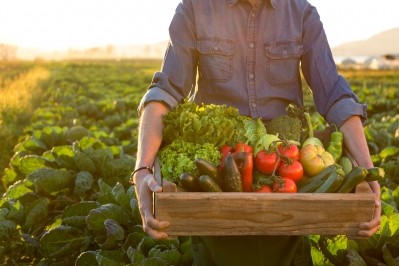News
Study explores potential of carbon sequestration on agricultural land

The study, published in Nature Food, explored the potential of carbon sequestration and offered insights into the economic effects as well as its climate change mitigation potential.
Carbon sequestration on agricultural land refers to the process of capturing and storing carbon dioxide from the atmosphere in soil and plants on farms.
To help absorb carbon dioxide from the air and store it in the soil or in plants on their farms, farmers can use techniques like planting cover crops, using biochar (a type of charcoal made from organic waste) or planting trees alongside crops or pastures in order to turn agricultural land into a carbon sink.
The study results indicate that by 2050, these agricultural practices could reduce as much greenhouse gas emissions as planting new forests, particularly in regions like sub-Saharan Africa and South America.
Meanwhile, it is estimated that carbon sequestration on agricultural land could also enhance agricultural productivity and resilience to climate change. This could enable the agriculture, forestry and land use sectors to achieve net zero emissions globally by 2050 at costs between $80 and $120 per ton of CO2 equivalent.
Economic and environmental benefits
Explaining the rationale behind the study, lead author Stefan Frank, a senior researcher in the Integrated Biosphere Futures Research Group of the IIASA Biodiversity and Natural Resources Program said: “We set out to assess novel carbon sequestration options on agricultural land and their dynamics in an economic model. To date, these options were only assessed in bottom-up engineering studies and hence not considered in Integrated Assessment Model-based climate stabilization pathways that underpin the forward-looking chapters of the reports of the Intergovernmental Panel on Climate Change (IPCC).
“Given the interlinkages across mitigation options, economic sectors, and world regions, integrated economic assessments like ours can provide valuable insights on the system-wide effects of these options.”
Co-author Andrey Lessa Derci Augustynczik, a researcher associated with the same program at IIASA, added that the adoption of carbon sequestration could have numerous economic benefits.
”These efforts would not only cut overall economy-wide emission reduction costs when compared to a 1.5°C scenario without agricultural carbon sequestration practices, but also reduce losses of global economic output by 0.6% by mid-century under a climate stabilisation scenario aiming to limit warming to 1.5°C,” he continued.
“In addition, farmers could earn substantial income from these activities – up to $235bn by 2050 – if they receive financial incentives for every additional ton of CO2 stored in soils and biomass at a projected greenhouse gas price of $160 per ton of CO2 equivalent in 2050.”
The authors also highlighted that the implementation of the changes discussed will require strong institutions and monitoring of systems globally to ensure that farmers adopt these practices correctly and are paid fairly for their efforts.
“Despite the large mitigation potential at rather low cost, agricultural carbon sequestration potentials are mainly located in the Global South, which warrants caution as several structural, institutional, or social barriers exist,” Frank noted.
"To unlock these potentials and provide meaningful contributions to ambitious climate stabilization efforts, highly efficient institutions and monitoring systems must be deployed in the short-term and the necessary policy incentives need to be put in place fast.”
In other news, Cheshire-based Roberts Bakery has announced the appointment of Julia Banton as its new managing director.

















